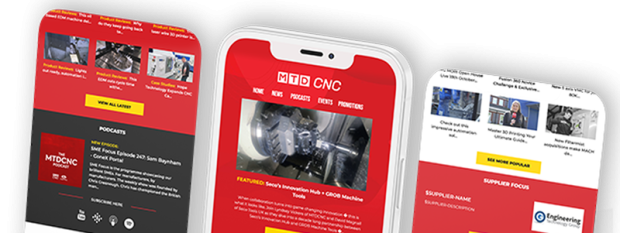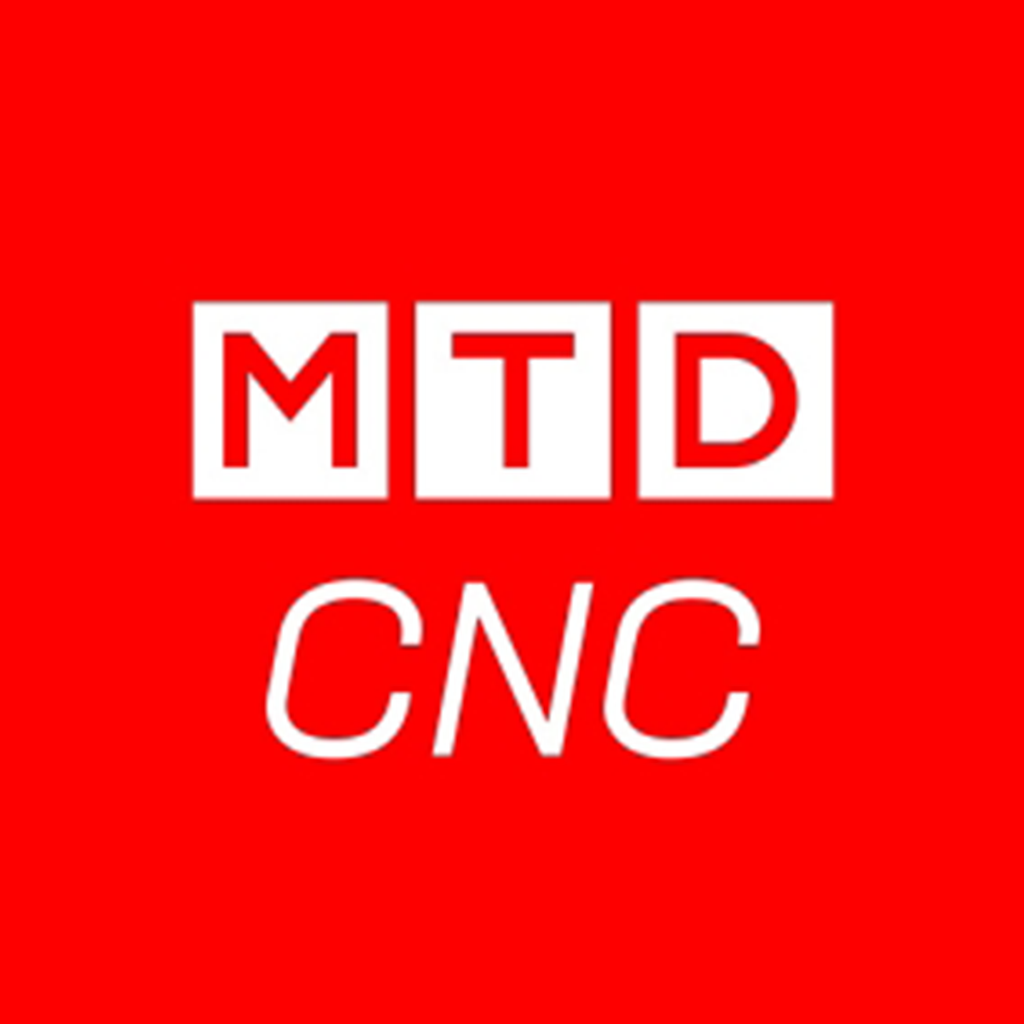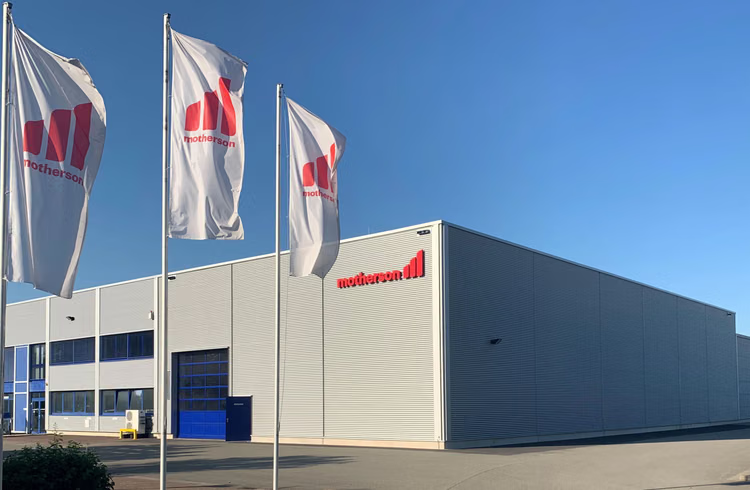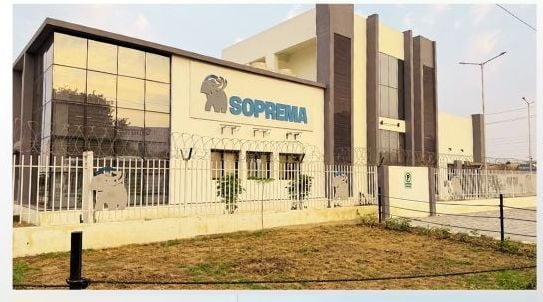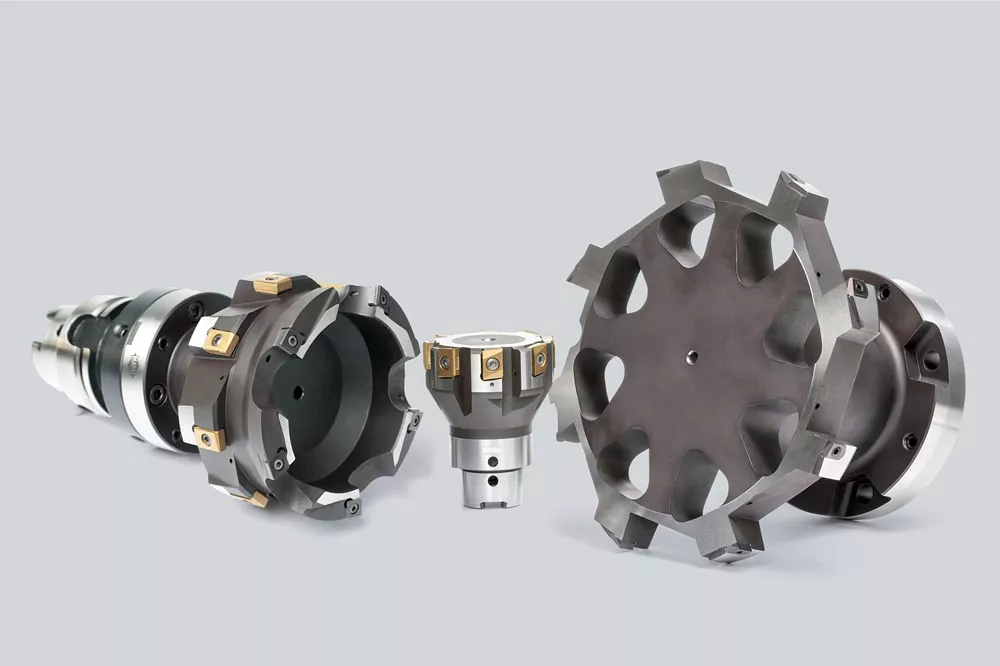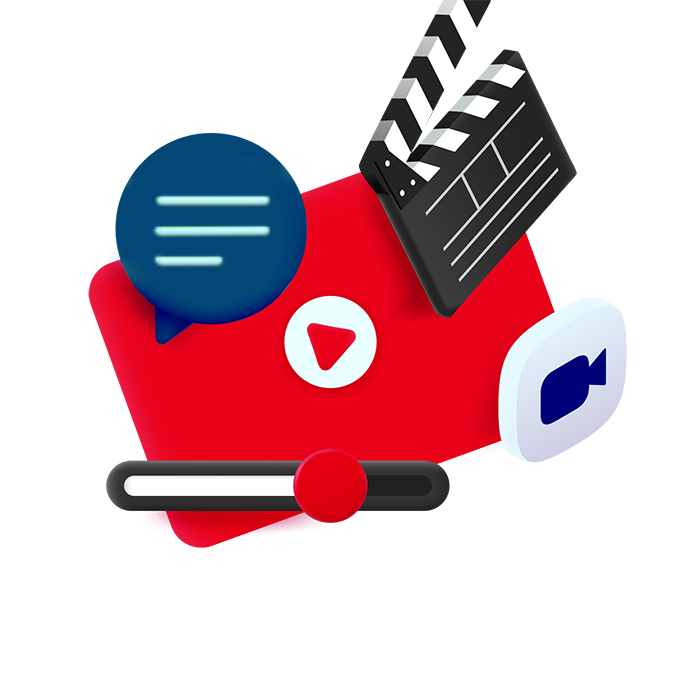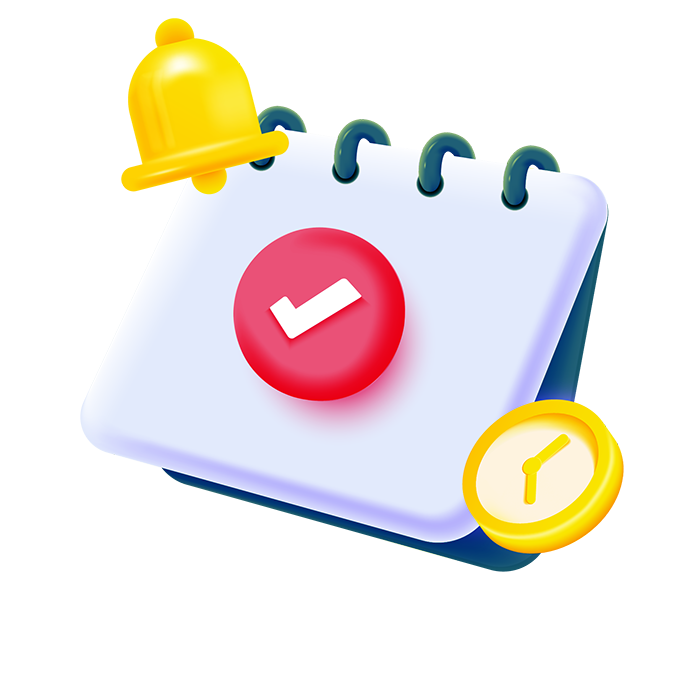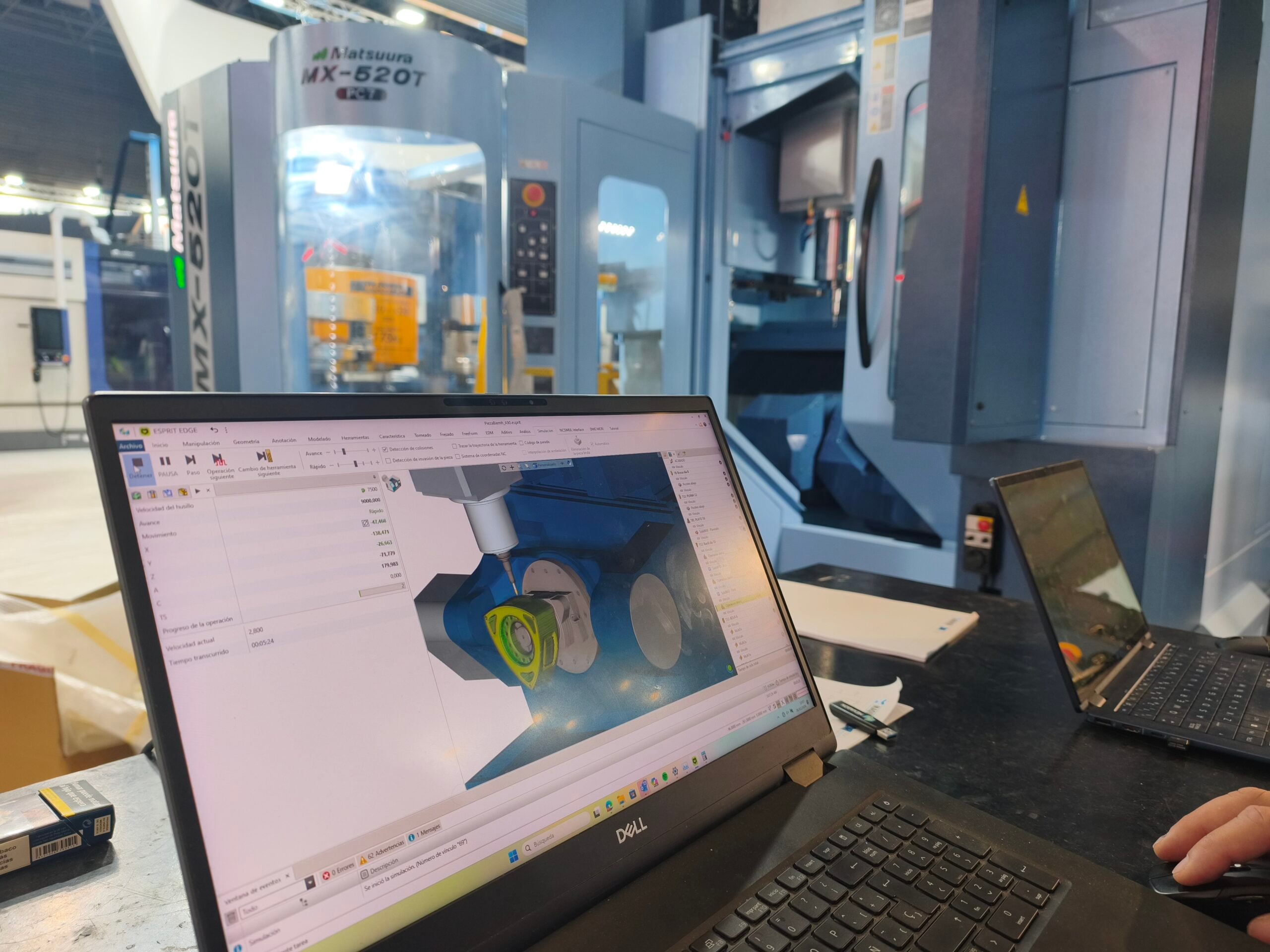
From Excel data to data excellence
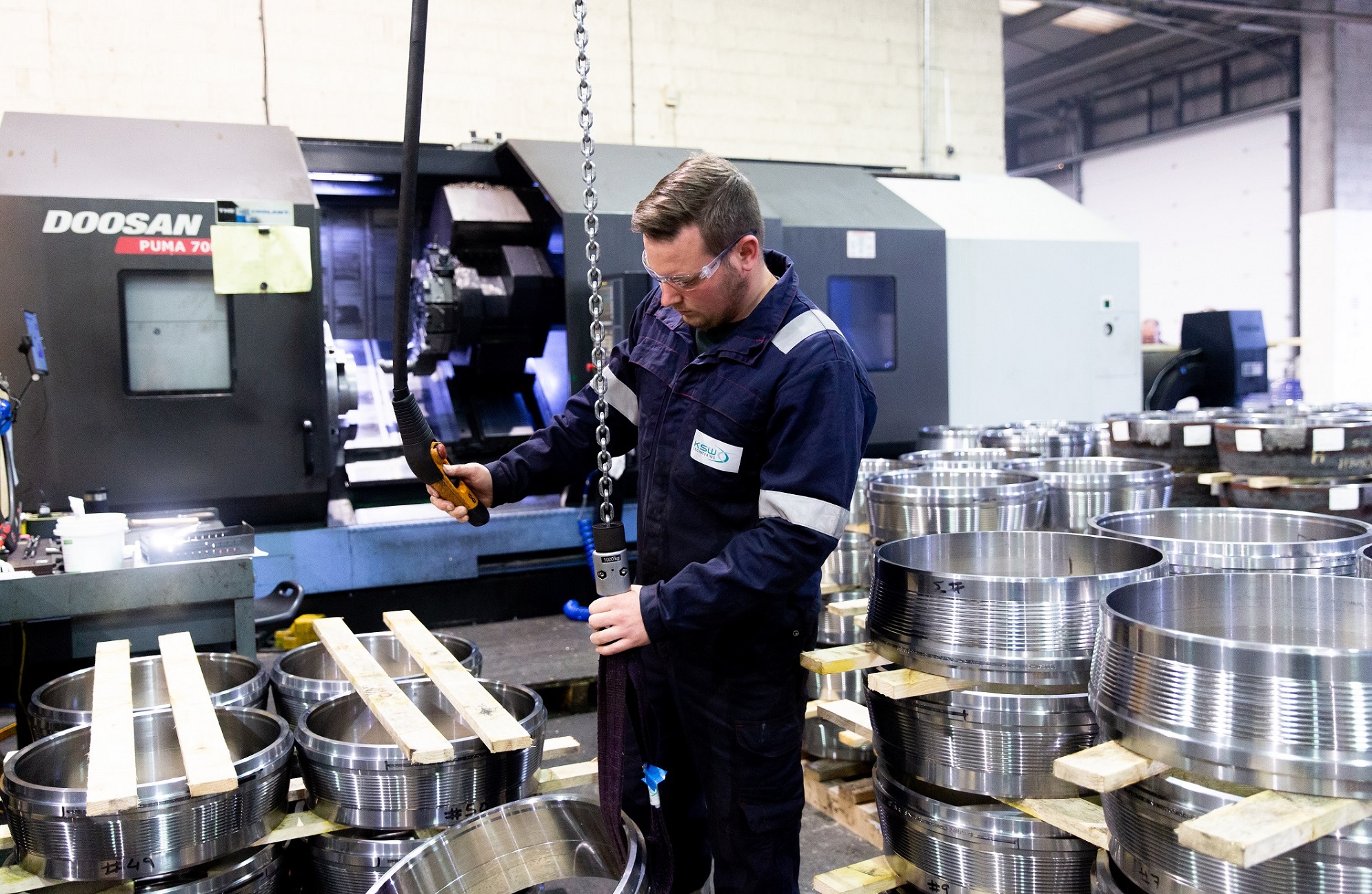
Harry Gray is no fan of zoom meetings. He prefers a phone call: or better still, face-to-face. But the former manufacturing engineer turned sales manager at KSW Engineering in Glenrothes, is no technological luddite. He understands the power of data: how connecting his firm’s CNC machines to the cloud enables KSW to collate and export data to the shopfloor, giving operatives the information they need to get the most out of their machines.
But the journey to a data rich shopfloor has not been an easy one. “We are a precision engineering sub-contractor in the oil and gas industry where no two jobs are the same. But it was very apparent to us that, despite modern cutting practices being employed on the latest machine tools, we were losing time on jobs, costing us profit and negatively impacting both our own schedules and that of our customers.

“In most cases, following investigation, the overruns were caused by avoidable measures. We looked into a number of machine tool monitoring systems, but the hoops we would have had to jump through to get them to work and the price we were expected to pay made it impossible.”
Undaunted, Harry came up with a simple solution. “I created an excel document that we printed off and gave to the operators on the shop floor and they basically marked where there was a stoppage and the reasons. These were handed in at the end of the day to populate a spread sheet,” said Harry. The information provided in the early days convinced Harry that he was on the right track – it helped in getting beyond the ‘excuse of the day’ for machine stoppages.
 “It was all great at the start but, after a few months, it quickly became a box ticking exercise – the guys didn’t buy into the data and it was also time consuming . Over time as workloads within the engineering team increased (I had moved into my sales role by this point) the data collection fell by the wayside” said Harry.
“It was all great at the start but, after a few months, it quickly became a box ticking exercise – the guys didn’t buy into the data and it was also time consuming . Over time as workloads within the engineering team increased (I had moved into my sales role by this point) the data collection fell by the wayside” said Harry.
The experiment might have ended there, but Harry is not a quitter. Despite his move to sales, he was convinced he was on the right track. “It was my baby and I wasn’t about to abandon it. Over the last nine years the oil and gas supply chain has ridden a roller coaster as prices would rise and fall. It’s very easy to mask overruns when prices are high, but when you are having to fight for every order your times are critical because, when you have slashed your costs, any overrun hurts. It’s then that it becomes very apparent that you need to raise your game and data is the best way to do that.”
It was then that he noticed FourJaw on LinkedIn. “The first thing that struck me was the cost. The cost model was extremely reasonable compared to what I had been offered before. Second thing it all seemed so simple it was almost a no brainer,” Harry said.
A call to FourJaw founders, Robin and Chris, and a demo of the technology confirmed Harry’s gut feelings. This was a no brainer. “The guys ran through the software with us online. It was so simple there was no need for a visit. We were sold on it immediately. We knew we needed to do this, but the cost and the hoops we had to jump through with other providers made it impossible. With FourJaw the initial outlay was so small it wasn’t a risk: that, and the simplicity of it, was unbelievable.
An immediate order for three machines was placed; not because KSW wanted to test the tech before a wider roll out; but because there were only three machines on the shopfloor with a good wi-fi signal. “The majority of our factory was a bit of a dead zone,” said Harry. “That said, we put it on one of our busiest machines, one that works 24 hours a day and six days a week. With just one day of data from FourJaw my Managing Director immediately authorised a big upgrade in wi-fi, so that all our machines are connected to the cloud.”
“What impressed him was the ability to view machine activity remotely, to be able to see what the machines are doing through the night. It took all the guesswork out of our operations. Unlike the excel spreadsheet, the operatives bought in to it straight away. They understood immediately it was not a tool to monitor them but to help them. If a machine stops because they don’t have the right tool that is not their fault. If it’s taking an operator an hour to find a tool that should be next to him, then we as a company are letting him down. All these individual down times add up to lost production. FourJaw’s technology is giving us 24/7 visibility of the shop floor for the first time and enabling us to make the right decisions to improve productivity.”
 “All the machines are different. Each has a totally different challenge in setting up. Each has a different operator. Some took to it like a duck to water, but others had never used a tablet in their life and would probably still use a dial up phone if they could. But they are all embracing the app because they can see how it can improve the way they work, make the firm more productive and enable us win new contracts,” he added.
“All the machines are different. Each has a totally different challenge in setting up. Each has a different operator. Some took to it like a duck to water, but others had never used a tablet in their life and would probably still use a dial up phone if they could. But they are all embracing the app because they can see how it can improve the way they work, make the firm more productive and enable us win new contracts,” he added.
Today the Glenrothes factory has full wi-fi coverage accelerating the roll out of FourJaw’s technology out across all KSW’s machines. As a result they have already identified a potential pinch point in the programming of work off machine that could hurt the company.
Looking at the downtime reasons on the FourJaw portal, Harry saw that a significant period of machine stoppage was due to on-machine programming. While this is standard practice in the machining industry, it ties up the machine for long periods of time which otherwise could be used for making parts and earning revenue.
With a quick calculation, Harry realised that moving towards off-machine programming would pay for itself many times over through the extra machining capacity that would be created.
For Harry the benefits of the App continue to flow: “If I am quoting a job out and that job is taking an hour, our people need to realise that if they take an hour and ten minutes we are immediately losing money. That ten minutes could be something as simple as tools not being available. Knowing this will enable us to streamline our shopfloor to make it more efficient: after all, why should our customer pay for us not having a programme ready on time?”
 “That’s a failure on our side we need to rectify. We need to know if we are always failing to get programmes out on time. If that’s the case, might need to increase that overhead by adding another member of staff into the department to remove that problem.”
“That’s a failure on our side we need to rectify. We need to know if we are always failing to get programmes out on time. If that’s the case, might need to increase that overhead by adding another member of staff into the department to remove that problem.”
“There will be a natural utilisation rate on machines and we think we have a handle on that through historical memory, but that is all it is. Without the data we can never have a hard and fast yes that is exactly the rate. We are already detecting trends between different operators. We are finding one operator who is going to assist other operators who are a little less skilled to help them out. It’s not that we want him to stop supporting his colleagues, but the company needs to be aware that there is maybe a skills gap that need filling with additional training.”
“The data we are getting is going to help us move forward in the future. No one can afford to have a good production manager standing on the shoulder of every operator to see exactly where we could make improvements to productivity. The FourJaw app is essentially giving me a production manager on every single machine: at a very, very low cost.”


